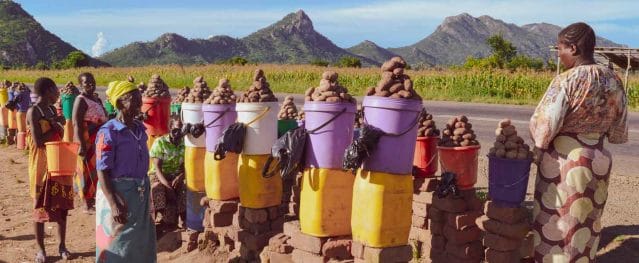
African women are still disproportionately affected by poverty, and the coronavirus pandemic is exacerbating gender inequalities, according to new African country gender profiles developed by the African Development Bank.
The profiles also found that gender stereotypes are present in most countries and have a negative impact on women’s lives and livelihoods. Some of these impacts include a rise in gender-based violence, the heightened load of unpaid work and loss of livelihoods due to over-representation in the informal sector. The profiles call for gender issues to be prioritized in the Covid-19 recovery processes.
The Bank released country gender profiles for Burkina Faso, Malawi, Niger and Chad, which examine the state of gender equality in each designated country and provide concrete recommendations for governments, the Bank and development partners to accelerate gender equality in key sectors. The country gender profiles were prepared in collaboration with the Bank’s Regional Member Countries, civil society organizations and development partners like UN Women.
“The country gender profiles aim to spark dialogue and support evidence-based reform on gender equality at national level. The profiles are a guide to inform development policy makers and enrich development programs to better address gender disparities,” said Vanessa Moungar, Director of the Bank’s Gender, Women and Civil Society Department.
Despite the gloomy picture, the reports show that there has been improvement in African countries’ ability to address discriminatory laws and policies, and that the four countries covered in the publications have national gender policies and specific institutional mechanisms dedicated to gender equality.
Some highlights from the country gender profiles include:
- Burkina Faso: In the informal sector, women’s enterprises dominate trade (65.4%). Women engaged in cross-border trade have been particularly vulnerable financially due to border closures. The Burkina Faso gender profile recommends that case transfer programs are key to easing the financial burden and to helping women informal workers to sustain their income-generating activities.
- Chad: Early marriage is very common and it is estimated that about 67% of girls are married before the age of 18, and 30% are married before the age of 15. Cases of early marriage are expected to rise due to school closures. The Chad gender profile recommends increased support to women’s associations/civil society to provide adequate support to girls and women.
- Niger: The primary school completion rate is about 88% for boys compared to 73% for girls, and 59% for girls in rural areas. School and educational institution closures during epidemics tend to increase girl dropout rates. Girls are expected to take on domestic responsibilities, and their return to formal school may not be certain after the crisis. The Niger gender profile recommends crucial support to governments in order to roll out targeted programs to ensure all girls return to school.
- Malawi: Women are far more likely not to be paid for their work compared to men. Specifically, 59% of women reported that they are not paid for their labour, compared to 26% of men. The pandemic exacerbated women’s unpaid workload. The Malawi gender profile suggests that enhanced dialogue is required to facilitate change of gender norms through men’s groups challenging the norms.
“Gender data and analysis are critical but remain limited, slowing the achievement of the gender agenda. These reports, we hope, will help address this important challenge,” said Amel Hamza, Division Manager for Gender and Women Empowerment at the Bank.
The Bank started country gender profiles in 2004, and the latest four publications in the series are part of the Bank’s rollout of its new Gender Strategy for 2021-2025: “Investing in Africa’s women to accelerate inclusive growth.”
Download the profiles below.
